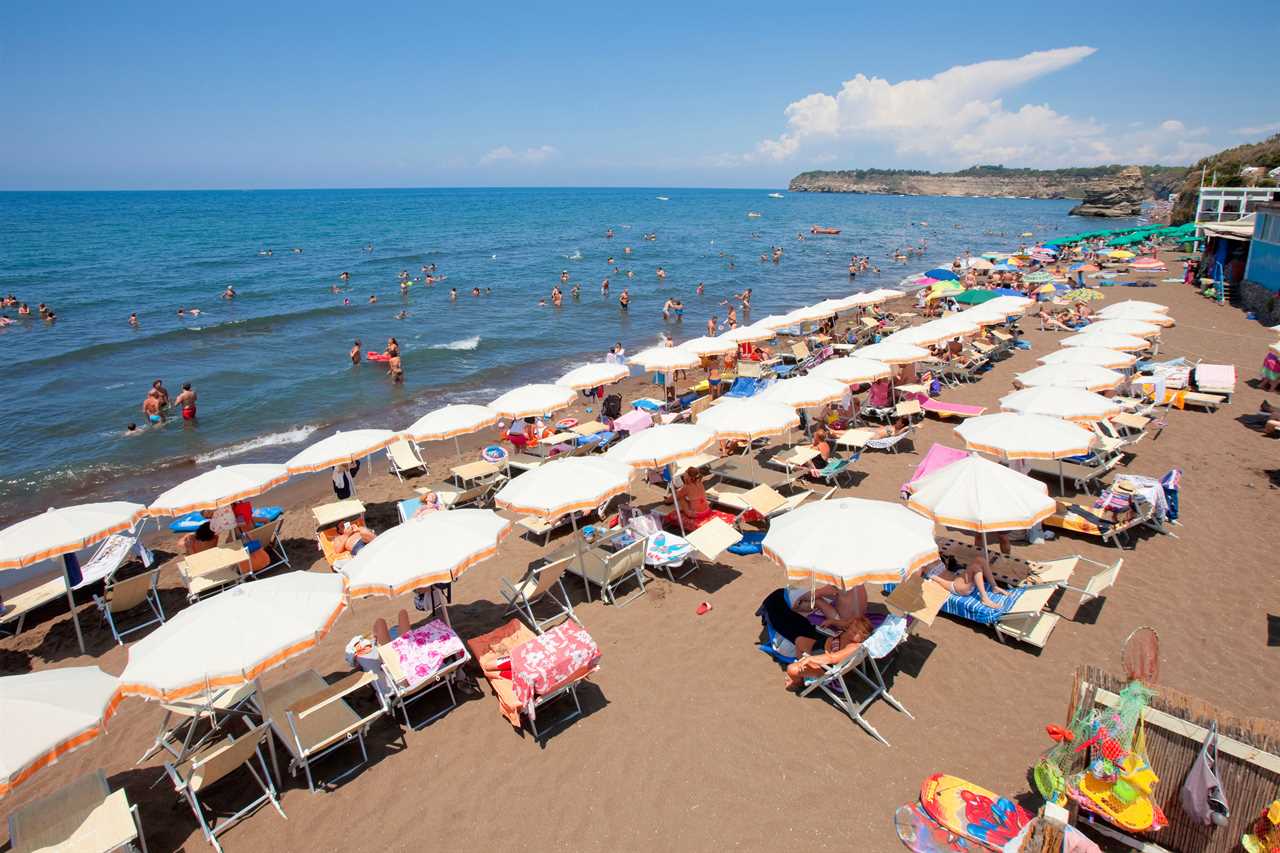SEVERAL European countries have changed their entry rules, making it more difficult for Brits to go abroad if they haven’t had their booster jab.
While the destinations will allow double jabbed Brits to enter, they have all put an expiry date on vaccine certificates, so if your second jab was too long ago, you can’t get in.

Popular holiday hotspots including Spain and Italy have brought the rules in from today, which specify your booster jab must have been received at least 14 days before arriving.
That means that if your vaccine certificate has expired and you’ve not yet had your booster, you won’t be able to get in during half term as it’s in less than two weeks.
We’ve rounded up the destinations you’ll be banned from over half term if you’ve not had your booster jab and you had your second jab last summer.
Spain – 270 days
From today, Spain will only permit Brits to enter if they can prove they were fully vaccinated against Covid within the last 270 days.
All adults who received their second dose more than nine months ago, which is on or before May 7, 2021, must have had a booster jab to be allowed in.
The booster must have been given more than 14 days before travelling.
The rule applies to kids aged between 12 and 17 which might be a problem for families hoping to go to Spain during half term.
Many under 18s are yet to be fully vaccinated due to the UK’s vaccine rollout schedule, so they will have no way of getting into the country.
Italy – 180 days
As of February 1, Italy will not consider Brits who were double jabbed more than 180 days ago as vaccinated unless they have had their booster.
That means any Brits who had their second dose more than six months ago – before August 2021 – must have received their booster to be deemed as vaccinated.
Unvaccinated Brits can still enter Italy, but it comes with strict rules, including Covid tests and five days of quarantine.
Brits who were hoping to head to Italy in half term, but who had their vaccine more than six months ago, won’t be let in without complications.
Netherlands – 270 days
Similar to Spain, the Netherlands has introduced a nine-month expiry date on a vaccine certificate.
Brits who received their second dose more than 270 days ago will need to have had a booster if they want to visit the Netherlands.
However, from tomorrow, the Netherlands is ditching its quarantine rules for Brits who were boosted at least seven days before arriving.
According to local media, a statement from the Ministry of Health of the Netherlands said: “From February 2, 2022, travellers with a booster shot are not required to be quarantined if the traveller received the booster shot at least seven days before the trip to the Netherlands.”
The quarantine rule scrap will make it easier for families to visit during February half term – as long as they have had the booster.
Switzerland – 270
Switzerland has also placed a nine-month expiration date on vaccine certificates.
The rule was introduced yesterday, and means that those Brits who received their second dose before May 2021 won’t be allowed in unless they’ve had their booster jab.
Austria – 270 days
Austria has also introduced a nine-month expiry date for vaccine certificates – so Brits need to have had their booster jab if their second dose was more than 270 days ago.
Currently, to enter Austria, Brits need to be fully vaccinated and show proof of a negative PCR test.
However, Brits who received their booster more than 90 days after their second vaccine won’t need to provide a PCR test on arrival.
Travel in half term will be easier for Brits heading abroad because Covid tests are set to be scrapped for fully vaccinated holidaymakers.
Day 2 tests will be ditched from 4am on February 11 and Brits will just need to fill in a passenger locator form when returning to the UK.
We’ve rounded up the 34 countries Brits can enter without needing any Covid tests – and these are the 38 countries Brits are banned from entering due to Covid rules.







